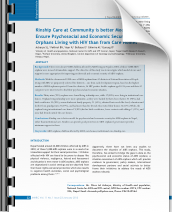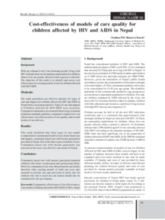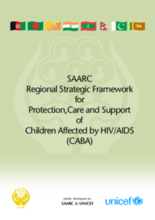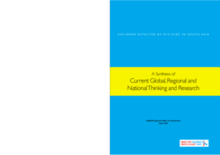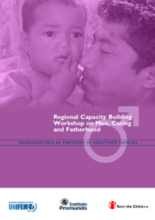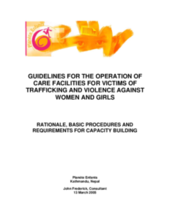This country page features an interactive, icon-based data dashboard providing a national-level overview of the status of children’s care and care reform efforts (a “Country Care Snapshot”), along with a list of resources and organizations in the country.
demographic_data
childrens_living_arrangement
children_living_without_bio
adoption
social_work_force
key_stakeholders
Key Stakeholders
Add New DataOther Relevant Reforms
Add New Datadrivers_of_institutionalisation
Drivers of Institutionaliziation
Add New Datakey_research_and_information
Key Data Sources
Add New DataAct Relating to Children 2018 - Nepal
Trafficking in Persons Report June 2018
Country Care Review: Nepal
Acknowledgements
Data for this country care snapshot was contributed by Forget Me Not and UNICEF Nepal.
Displaying 131 - 140 of 140
The objective of this study was to investigate which model of care and support is more appropriate for improving psychosocial and economic security of AIDS orphans in Nepal.
This research study aimed to identify and assess the cost effectiveness for existing models of care for children affected by HIV and AIDS in Nepal. The study performed a cost effective analysis for three types of care models in order to provide program managers and childcare professionals comparative economic evidence of the cost of caring for these children.
En 2007, les adoptions au Népal ont été confrontées à une grande pression et de sévères critiques de la part de médias nationaux et internationaux sur des allégations de corruption et d’enfants vendus. Comme conséquence, nombre de pays européens prohibaient alors les adoptions au Népal.
Evaluates the need for reform within Nepal's intercountry adoption programming and the broader needs within the child protection and alternative care arenas nationally.
A regional strategic framework for coordinating policies to protect, care and support children affected by HIV/AIDS in South Asia.
This report brings together current research – much of it unpublished – on the impact of HIV/AIDS on children in the South Asian region. It presents an overview of the findings of studies in Bangladesh, India, Nepal and Pakistan and recommendations for national action.
This report captures the discussions and activities from a workshop held in Kathmandu, Nepal on 17-19 October 2005 on engaging men as caregivers. The report presents a background and rationale, the expectations and objectives of the workshop, and an overview of work being done to engage fathers both in the region as well as globally.
Operational standards and guidance for residential care facilities for girls and women survivors of trafficking and abuse. It covers administration and staff, confidentiality, care planning, responding to immediate and longer term support needs, psychosocial care, life skills and reintegration activities.
This webinar featured presentations and discussions from practitioners who have experience of working on alternative care (short term and long term) and prioritising family-based care in emergency settings that could be helpful for practitioners in India as they plan a response for children who have lost parents to COVID-19.

